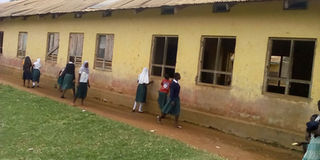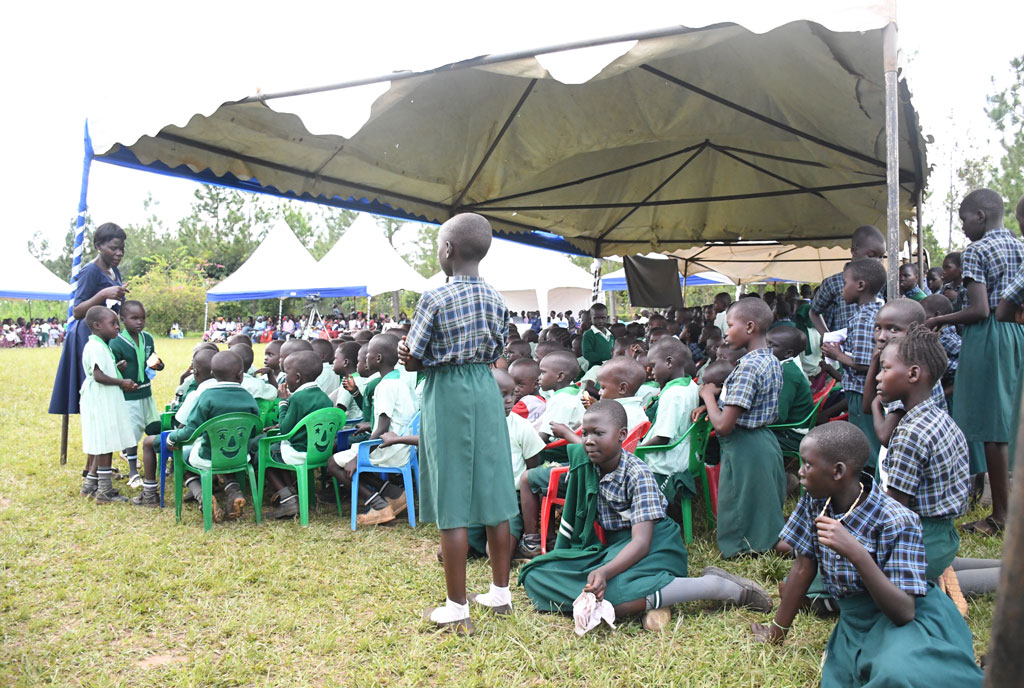Prime
Half of pupils in Budaka govt schools fail to return for third term

Students at Budaka Muslim Primary School recently. PHOTO/MUDHANGA KOLYANGHA
What you need to know:
- The district education officer, Mr Paul Higenyi, said parents have turned their girls into a business venture by marrying them off before they even clock the age of 16.
About 49 percent of pupils in government-aided schools in Budaka District are yet to return to class, a month after the third term started, education officials have said.
Officials say most of the pupils who have dropped out are girls due to forced marriages, teenage pregnancy, and failure by parents to buy scholastic materials.
Ms Khanifa Mugala, the senior education officer, said it’s unfortunate that such a big number of pupils has not returned during a promotional term.
“From the assessment conducted in the schools across the district, it was found out that about half of pupils haven’t reported back to school,” Ms Mugala told education stakeholders during a community engagement in Lyama Sub-county at the weekend.
The district has 59 government-aided primary schools. Ms Mugala said early pregnancies and marriages are partly to blame.
“The situation isn’t good unless serious interventions are made to address it,” she said.
Ms Mugala also faulted parents for having a negative attitude towards education and neglecting their responsibilities and duties.
“We have, however, embarked on community engagement by challenging the parents to embrace education as a key priority,” she said.
Ms Mugala added that most of the schools lack adequate desks and staff quarters.
“We still have a deficit of about 3,000 desks but once funds are available, the challenge will be addressed,” she said.
The district education officer, Mr Paul Higenyi, said parents have turned their girls into a business venture by marrying them off before they even clock the age of 16.
The district probation officer, Ms Julian Muganzi, said Tademeri and Budaka sub-counties have the highest cases of teenage pregnancies and early marriages.
Teenage pregnancies in Budaka stand at 24.7 percent.
The head teacher of Nakisenye Primary School, Mr Felix Kirya, said parents have abdicated their roles.
“Parents need to change their mindset and embrace educating their children for a better future than thinking negatively all the time,” he said.
Mr Paul Kossa, the executive director, PACONET, a civil society organisation, said the community engagement on philanthropy for development is aimed at reviving the declining education in the region.
“Bukedi Sub-region used to be one of the leading regions in terms of education performance but time went on as the performance continued to shrink,” he said.
Civil society organisations step in
In January, civil society organisations focused on children’s wellbeing and their education launched a national coalition to resolve the soaring-dropout rates in the country. The drive, championed by the Initiative for Mtoto Wa Shule (IMS), a local non-governmental organisation, comprising more than 25 CSOs drawn from the five major regions of the country focuses on preventing future school dropouts and enabling victims resume school, besides guiding them through a recovery process from the effect of the dropout. A report by the National Planning Authority (NPA) showed that at least 30 percent of the 15 million learners who were sent home after President imposed a nationwide lockdown in March 2020 may no return to school. The report indicates that the problem may worsen illiteracy levels in the country, and hence recommends an immediate implementation of multi-sectoral approach to address the challenge.





